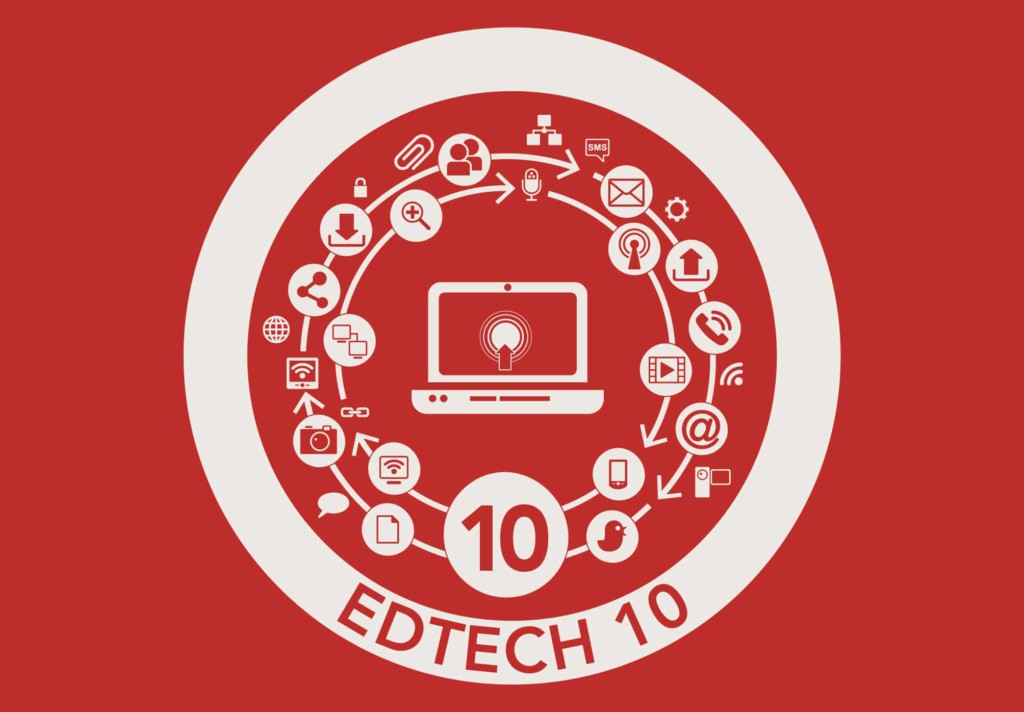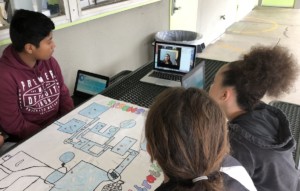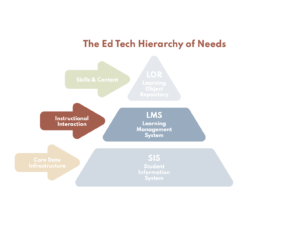EdTech 10: No Brain Drain Here

Summer Brain Drain is a well-documented concept. However, our team has recently noticed that the dreaded “summer slump” that sends out-of-practice kids into classrooms each fall doesn’t seem to affect adults. In fact, we’ve got evidence that teachers and leaders will be showing up with new tools to drive new practices as a result of a very productive summer. Check out this week’s top ten EdTech stories for a scan of the proof.
Blended Schools & Tools
1. On the rise. Chromebook sales made headlines a couple of times this week, with Google (@Google) reporting that they sold over 1 million Chromebooks in the last quarter, compared to the 2 million total sold in all of 2013. The purchase of 40,000 Chromebooks in Maryland’s Montgomery County schools is just one recent example of district commitment to expanding access to technology through device purchases. We’re excited to see more districts making this commitment and hope district leaders are following the recommendations set forth in the Blended Learning Implementation Guide 2.0 and promoting Writing Across the Curriculum.
Digital Developments
2. Startups in the second city.Pearson announced a strategic partnership with Chicago incubator 1871 (@1871Chicago). With over 250 member companies, 1871 is the largest startup hub in the country. “We’re committed to addressing some of the biggest challenges in education and believe that partnering with the startup community is vital for stimulating greater innovation in the industry and improving learning outcomes,” said Diana Stepner, Pearson VP of Innovation Partnerships and Developer Relations. “Two of the startups selected for our edtech accelerator Pearson Catalyst for Education (@PearsonCatalyst), announced last month, were recommended by 1871 and we look forward to working more closely with other startup talent in the area as well.”
3. “Hey You Guys!” Knewton and Sesame Workshop announced (@Knewton, @SesameWorkshop) partnership to personalize education content from The Electric Company (@ElectricCompany). Starting in 2015, The Electric Company content will be available via Knewton’s adaptive learning curriculum.
Dollars & Deals
4. Lay of the land.Flybridge Capital Partners (@Flybridge) released a groovy Prezi of its EdTech Market Landscape. The map categorizes edtech companies into two dimensions: who the customers are (consumers/students, teachers, and schools/enterprises) and what segment they sell to (K-12, higher ed, adult/lifestyle and professional).
Summer Reading List
5. 25 years and counting. The Annie E. Casey Foundation’s (@AECFNews) annual Kids Count (@aecfkidscount) report launched this week. Since 1990, the report has ranked states according to an index of key indicators in four domains: economic, well-being, health and family/community. Improvements have occurred across all key education and health indicators but the percentage of children in poverty and children whose parents lack secure employment, have worsened.
Smart Cities
6. Unlocking innovation. Two new posts in the “Smart Cities” series this week preview what readers can expect from Tom’s forthcoming book, “Smart Cities that Work for Everyone: 7 Keys to Education and Employment,” (in bookstores September 17). DreamBox Learning’s (@DreamBox_Learn)Jessie Wooley-Wilson covered mindset, feedback, agency and integration. Strive’s (@StriveTogether) Jeff Edmonson and Greg Landsman described the connection between quality collective impact and impactful innovation.
Teaching Matters
7. Tackling turnover. This week the United States Department of Education (@usedgov) announced its three-part Excellent Educators for All Initiative. The initiative includes: state-created comprehensive educator equity plans, a $4.2 million educator equity support network, and the publication of educator equity profiles. The Alliance for Excellent Education (@All4Ed) released a report indicating that teacher attribution costs the U.S. up to $2.2 billion annually and disproportionately affects high-poverty schools, while confirming that “teaching quality is the most powerful school-based factor in student learning—one that outweighs students’ social and economic background in accounting for differences in student learning.”
Higher, Deeper, Further, Faster Learning
8. The words “competency-based education” (CBE) are appearing on the lips of a growing group of higher ed stakeholders. This week Edudemic (@Edudemic) described Why The Future of Education Involves Badges. Pearson announced (@Pearson) the development of an assessment tool that allows schools to gauge their institutions’ readiness to adopt CBE. Check out our recent report, “Preparing Teachers for Deeper Learning: Competency-Based Teacher Preparation and Development,” for more information on how badges, CBE, and education all come together.
Policy Praise
9. Bipartisan benefits. In a bipartisan response to a projection that by 2022, 11 million workers will lack the education necessary to succeed in a 21st century workplace including bachelor’s degrees, associate’s degrees, and vocational certificates, President Obama (@BarackObama) signed the Workforce Innovation and Opportunity Act passed by Congress on July 9th. Promising things about this bill include: Consolidation of existing programs and alignment of workforce development program; Empowering local boards to tailor services; Focus on internships and on-the-job training; Encouragement for states to develop a single, comprehensive state plan; and A focus on disconnected youth. For more on the next generation of College and Career Readiness, check out Core and More: Guiding and Personalizing College & Career Readiness.
For The Core
10. Leading in the Core era. A recent poll regarding the implementation of Common Core State Standards (CCSS) indicates that about two-thirds of district superintendents said they believe CCSS will improve the quality of education in their communities. We’ve noticed an uptick in acknowledgement and support for leaders as states shift to CCSS. District Administration magazine (@DA_magazine) covered tips for selecting apps that meet CCSS demands. Even HigherEd leadership is invited to the party.
Pearson, DreamBox Learning, and Digital Learning Now are Getting Smart Advocacy Partners.







0 Comments
Leave a Comment
Your email address will not be published. All fields are required.